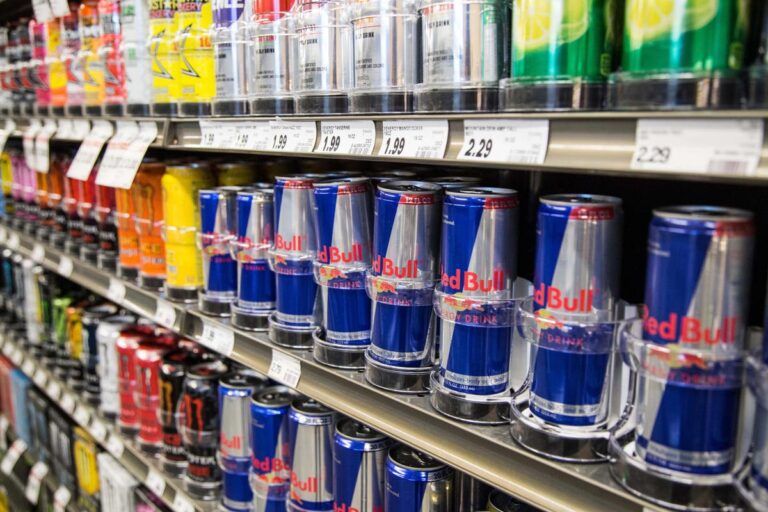Energy drinks are often the go-to for people looking to combat fatigue, but new research suggests that these drinks could lead to serious health problems.
These drinks often contain high levels of sugar and caffeine, and doctors have warned they can cause life-threatening conditions that require emergency medical treatment.
Energy drinks contain 80-300mg of caffeine per serving, while a cup of coffee contains 100mg of caffeine.
Many of these also contain additional ingredients such as taurine and guarana, which are thought to alter heart rate, blood pressure, and other cardiac functions.
The popular drink can disrupt the heart’s electrical system, increasing the risk of abnormal heart rhythms (arrhythmias) that can lead to serious health consequences, including cardiac arrest, where the heart suddenly stops.
Researchers from the Mayo Clinic in the US looked at medical data from 144 patients who survived cardiac arrest after emergency treatment and found that seven people aged between 20 and 42 had consumed energy drinks before their life-threatening condition, six required electroshock therapy and one required manual resuscitation.

“Critics might say of these findings, ‘this is just a chance association,'” Peter Schwartz of the Center for Arrhythmias of Genetic Origin and the Institute of Cardiovascular Genetics in Milan, Italy, wrote in an accompanying editorial.
“While we and the Mayo Clinic group fully acknowledge that there is no clear, conclusive evidence that energy drinks actually cause life-threatening arrhythmias and that more data is needed, it would be remiss not to sound the alarm.”
The two main stimulants in carbonated energy drinks are caffeine and sugar, but how exactly do they affect our bodies?
“Caffeine increases heart rate, improves concentration, keeps people awake longer and keeps you from sleeping,” explains Dr Belinda Griffiths, from the Fleet Street Clinic.
“Caffeine is good for adults, and many studies have shown that drinking two or more cups of coffee a day may have a beneficial effect on heart disease, depending on the amount of caffeine in the drink.”
But refined sugar, especially the amount found in energy drinks, is just not healthy.
“We can all happily get by without sugar; we get enough sugar from other things we eat and drink,” Griffiths says.
“Your blood sugar levels rise, you get a short-term surge of energy but then it drops. It affects your mood and you feel increasingly hungry afterwards. [meaning] You might want to eat more.”

Beanie Robinson, a London-based nutritionist and founder of The Health Space, says that anyone looking to ditch energy drinks should consider switching to sparkling water.
The nutritionist says, “We don’t want to rely on energy drinks to get energy. I encourage my clients to drink filtered water; this is what gives us energy.”
“When you consume large amounts of energy drinks, you are consuming caffeine, artificial flavours and sweeteners, which can affect your energy and gut health.
“If you like having an energy drink every now and then, it probably won’t do you any harm, but there are better alternatives that avoid the sugar and caffeine.”
She also recommends adding a squeeze of lemon, lime, cucumber or mint to still or sparkling water for extra flavor.


